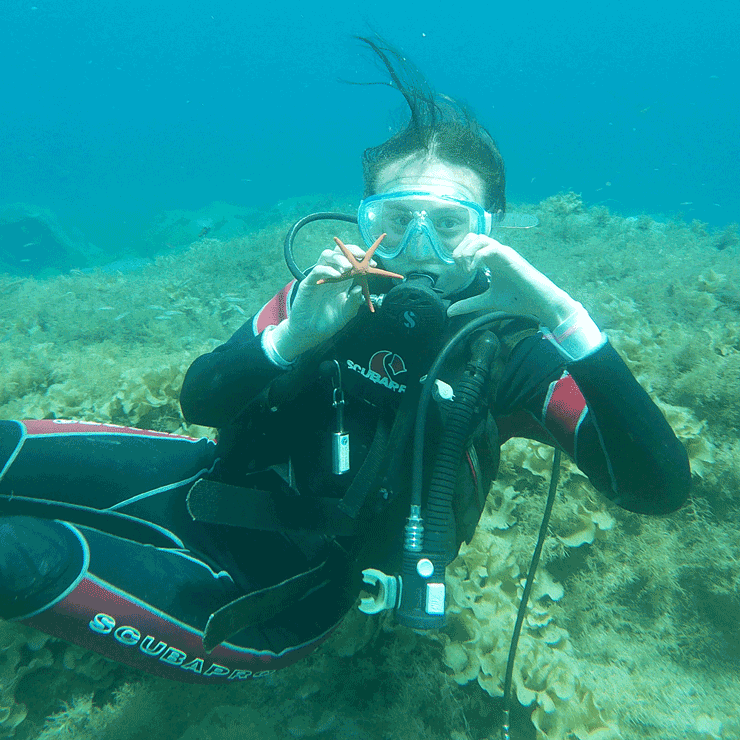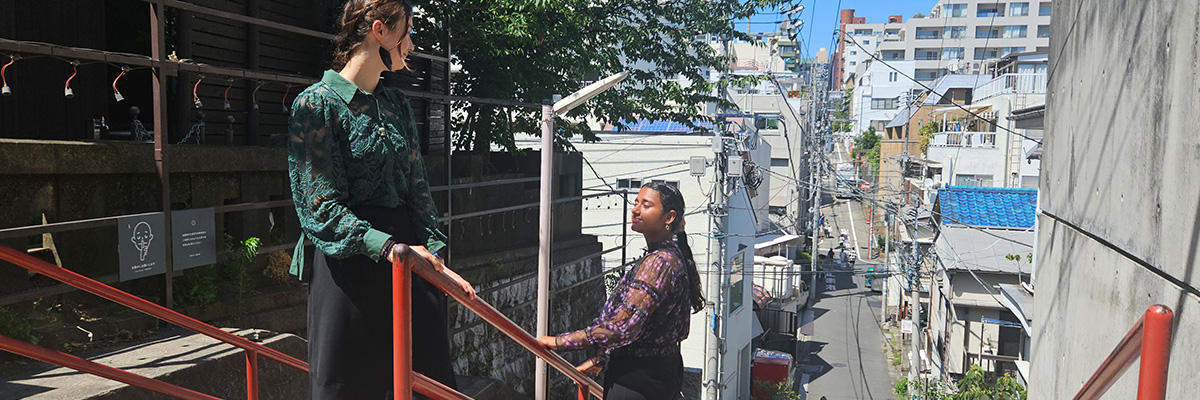Whether you’ve just returned or studied abroad what feels like ages ago, your global experience doesn’t have to end there. With proper planning, you can study abroad again!
Living in a foreign country will not only help you to build a global network, but also encourage skills that don’t expire or lose relevance in an ever-changing world. This could be the best thing you can do for a future that may feel like a moving target at times.

770+
Students studied abroad on more than one program.

525+
Students studied abroad in more than one country.

43
Internships taken by students on a second study abroad program.
Source: Data from UCEAP Institutional Research, including participants from 2018-19 through 2024-25 (year-to-date).
Benefits of going abroad again
College is a time to develop professional skills, and studying abroad gives you a unique opportunity to build those skills in a cross-cultural context. If this is your second time around the study abroad landscape, it’s time to upskill.
Power skills—also known as soft skills, human skills, or professional skills—are always in high demand because they show eagerness to continue growing and learning. In short, hard skills get you in the door, and power skills make you an invaluable part of the team.
Studying abroad is evidence of your willingness to go beyond the typical academic experience, be open to new opportunities and cultures, and gain a (second) new perspective.
Going abroad more than one time lets you build on that progress with new experiences, higher-level language skills, internships, and research opportunities to improve your postgraduate options.
I gained separate lessons from each experience. With the first one I learned to be more independent, adventurous, and able to make the most out of my experience. During my second study abroad program, I learned how to not just be fun and spontaneous, but also safe. There are always more ways to learn and grow.
Autumn Jackson
Scotland and Japan | UC Berkeley
Steps to go abroad again
You may think of yourself a seasoned expert at study abroad planning at this point, and you are—however, there are some important considerations and steps to plan your next adventure.
1. Reflect on your new goals
Reflect on what you learned the first time you studied abroad—your goals for this adventure may be different!
For example, do you want to take on an internship for work experience or participate in an exciting research project?
About half of all US university students study abroad in the UK, Western Europe, or Australia. Think about expanding your experience to a different location when you go abroad again.
Not sure about your new goals for study abroad? UCEAP's online Navigating Reentry course guides you through private, self-paced activities that help you reflect on your experience abroad. It provides resources and ideas for new study abroad pathways. Access the course in UCEAP Learn with your UC campus credentials.

It’s so much easier to travel for an extended period of time when you’re a student, and it’s easier to get a visa. I really wanted two different experiences. Within the UCs and UCEAP, you have room to do what you want.
Camden Blumberg
Australia and Italy | UC Santa Barbara
2. Review the process
You remember what it was like to study abroad the first time—depending on where you go, however, there may be different requirements, like a visa process or host university application.
- Review the process to remember what it takes.
- Check your passport expiration date. Remember, many countries require a passport valid for 3-6 months after your return date. You may need to renew your passport even if it hasn’t expired.
- Use the UCEAP Study Abroad Planner as a guide.

What I would say to my past self is to do more research. For my first program I didn’t have as much going on, so I was just researching all the time. For my second program, I didn’t give it much research because I figured I would just be hanging around different parts of Europe. But I ended up wishing I had picked a different city. So even if you’re really excited to study abroad again, you should still do all the prior research.
Camden Blumberg
Australia and Italy | UC Santa Barbara
3. Find your next study abroad program
UCEAP study abroad programs come in many different types and lengths. If you participated in a quarter or summer program, for example, you might consider a semester or year-long program to spend more time abroad.
Think about these things:
- If you studied abroad in one of the more traditional locations (hello Europe), you may want to expand your international experience to a new location.
- If you participated in one of the programs where lots of the decision-making was done for you, you might consider a full immersion program this time.
- Now that you know the value of studying abroad, you may want to complete an internship or research project or connect with graduate school faculty abroad.
- Or study abroad as a graduate student!

4. Take action!
You’re an old hand at this already—just follow these steps:
- Consult with your academic advisors about how study abroad can meet your graduation and career goals.
- Stop by your UC campus study abroad office to learn the application requirements.
- Search and apply for scholarships to make your next study abroad opportunity more affordable. See how Matthew Hernandez (UCSB) paid for an entire study abroad experience with scholarships.
- Visit your campus career center—they can help you assess your work/life values, provide early career advising, and help you articulate your academic career and experiences abroad in job interviews.
- If you’re a US citizen, consider applying for the self-paced certificate program Peace Corps Prep to volunteer abroad and build international experience you can use after graduation.
It’s never too late! While those who return home with only a year left of university may feel their options are limited, there are still many opportunities to explore. For instance, many seniors spend their last quarter abroad and either make it back in time for graduation or petition to graduate abroad. Although this may mean you won’t walk across the stage in typical fashion, working towards your diploma while on the journey of a lifetime could be an exciting alternative.

I think the main thing that holds a lot of students back is a belief in what a student is supposed to do, such as picking only one program or staying at your home university. Students should instead focus on what they’re drawn to, and if they’re like me and want to make the most out of these opportunities abroad, then there’s not too much of a reason not to.
Kamille Kazarian
Iceland and New Zealand | UC Santa Barbara
Furthermore, your global adventures don’t have to stop as an undergraduate! UCEAP offers graduate students interested in expanding their network, their language skills, and their role as global citizens several options.
As a graduate student, you can:
- Go abroad as a graduate student.
- Take on an international internship or research assistantship.
- Apply for a Fulbright Grant to teach or do research abroad.
- Apply to volunteer abroad for a longer experience in a host country―check out the UCEAP Peace Corps Prep Program.
I thought it would satisfy my appetite for travel, but it only made it even greater. I’ve been looking at Master programs in Japan.
Autumn Jackson
Scotland and Japan | UC Berkeley



